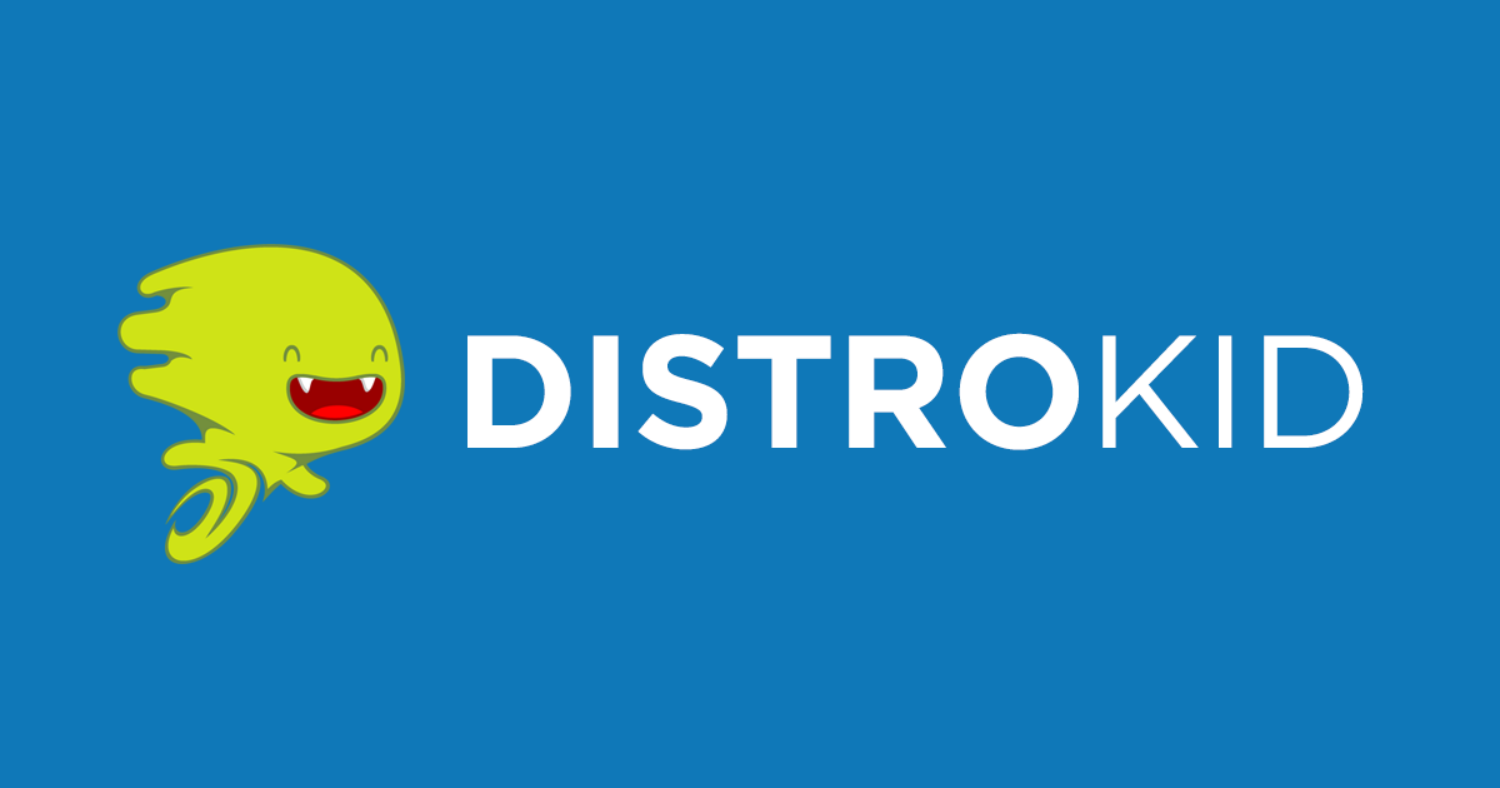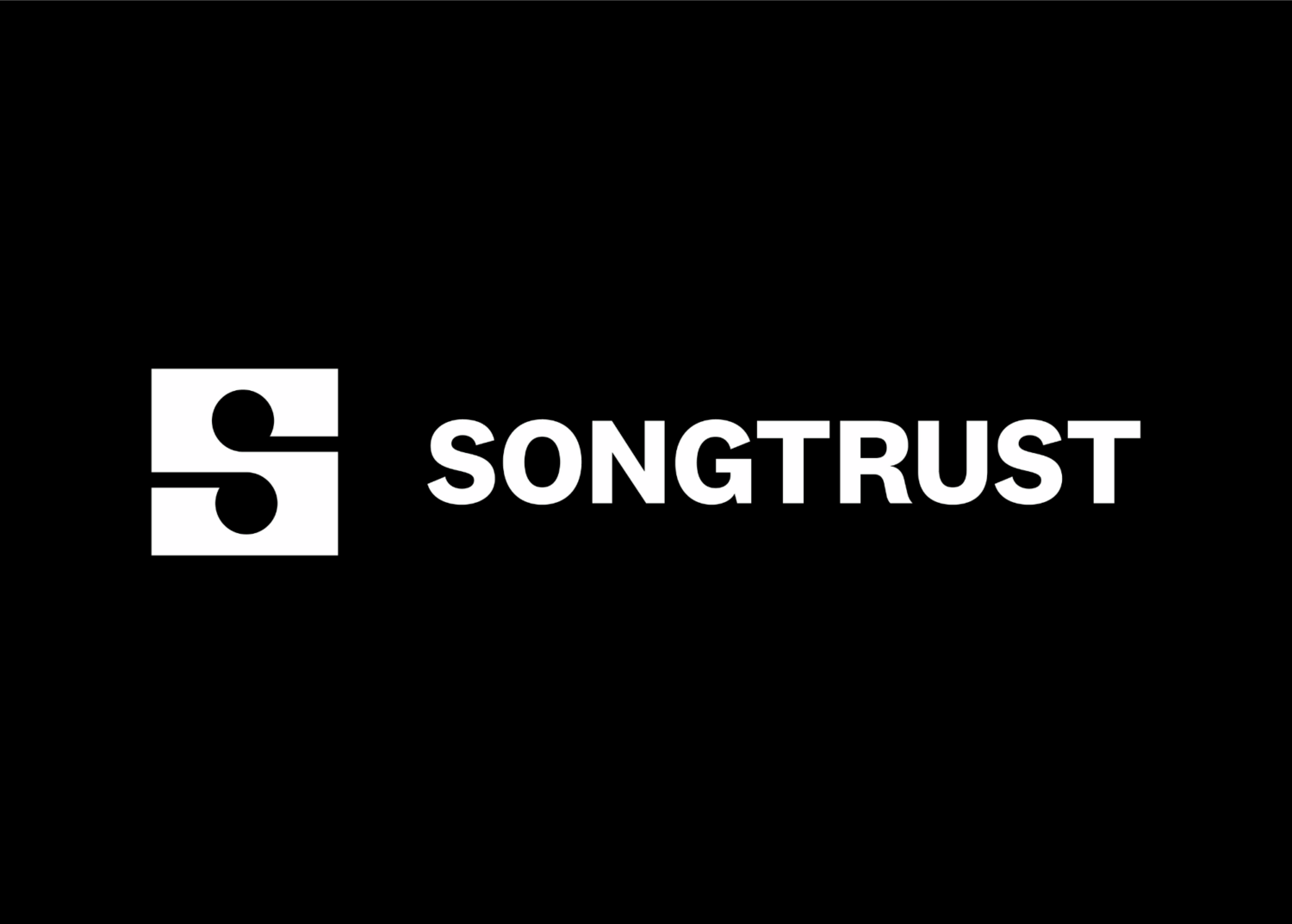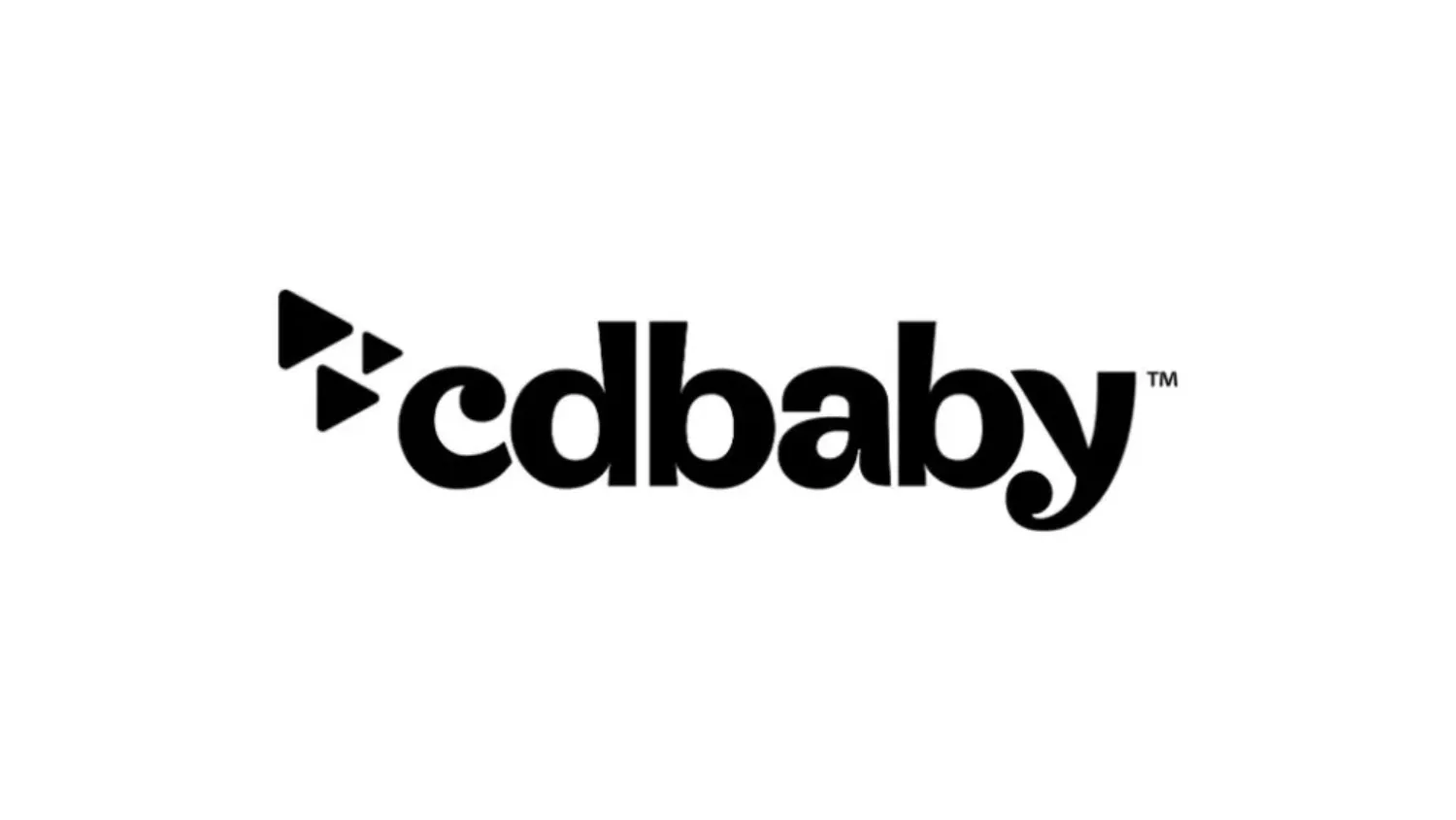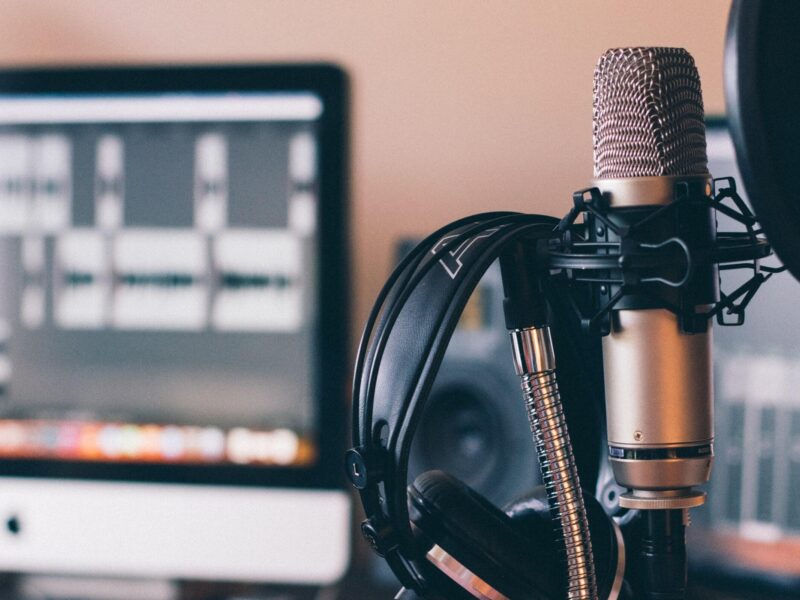
Download Your FREE 22-Day Single Release Plan
Music Distribution Services: A Musicians Guide (2022)
Contents [ ]
- What Are Music Distribution Companies?
- Why Do I Need A Music Distribution Company?
- What Are The Best Music Distribution Companies in 2022?
- DistroKid
- Ditto Music
- Songtrust
- CD Baby
- Tunecore
- Do I Need To Be Wary Of New Free Distribution Services?
- Be Aware Of Publishing
- Do I Have To Be Loyal To My Music Distribution Service?
- When Will I Get Paid By A Music Distribution Company?
- What Is The Best Strategy For You As An Artist?
For bands and artists to promote their music effectively, music distribution companies are required to get their releases into the ears of listeners.
Learn all about what music distribution services do, their role in the music industry, and which music distribution service you should use for your upcoming release!
What Are Music Distribution Companies?
Music distribution companies used to be closely tied-up with record labels. Back in the day, the only way an artist could release music to the public would be to sign a record deal, and the record label would get your music to the distribution companies who’d manage the task of getting physical copies of your music into record shops.
Today, the music industry and the way we typically consume music has drastically changed from those pre-digital, pre-internet, pre-Spotify times.
While music is still distributed in physical form and sold in record shops and supermarkets, for the most part music today is listened to in digital formats from online music stores.
Because of this change in the manner of consumption, modern-day music distribution now has a slightly different remit compared to a couple of decades ago.
Nowadays the job of a music distribution company is first and foremost in the digital distribution space. Their main goal is to get an artist’s music up onto online platforms and less about physical music like CDs. This switch towards being mainly a digital music distribution service means that independent artists now have more control over their releases in the music industry as a whole.
The industry on a whole is also less weighted towards record labels: music distributors now focus on providing artist services: targeting indie artists as a huge proportion of new releases come from DIY musicians.
Why Do I Need A Music Distribution Company?
Music distribution is critical for getting your music on Spotify and other streaming services.
Despite those rumours that sometimes suggest otherwise, it’s currently impossible for independent artists to upload their music directly to music platforms like Spotify, Tidal or Apple Music.
The confusion might have arisen from the fact that it’s so easy for anyone to upload videos to YouTube or put their music up on Soundcloud.
However, DSPs (digital service providers) - meaning those online digital stores like Spotify, Apple Music, Tidal, Deezer, Pandora, Amazon Music, Google Play; where the music is streamed by subscribers, operate a little bit differently. In order for unsigned independent artists to upload music to these DSPs, a middleman is required.
Spotify did run a short-lived beta program in 2018 to allow artists to upload their music directly to the platform. However, it only lasted a year and it became clear that they preferred to leave that task to a middleman.
This middleman is known as an aggregator or distributor. They handle the distribution of your music to the DSPs, but they’re also capable of other related services such as getting your music up onto platforms like Instagram and Tiktok or collecting publishing royalties.
There are a number of different music distribution companies that offer a paid service to get your music uploaded, but they all charge different amounts of money, with different payment models - some operate on a kind-of subscription basis charging you annual installments, while some will take a share of the revenue generated from the music.
The type of service they offer varies quite a lot from company to company as well. You'll need to do a bit of research to find the best fit for you. This music distribution guide aims to give you a solid foundation to make that important decision about the best music distribution company for you.
While the overwhelming majority of music distributors will take happily anybody on (it'd be bad for business to refuse potential customers), some - like AWAL - work on an exclusive policy whereby they are more selective with the artists whose music they choose to distribute, but in return for this elitism they'll often provide better service and music marketing resources.

What Are The Best Music Distribution Companies in 2022?
There are tons of music distribution companies. Amuse, AWAL, CD Baby, DistroKid, Ditto, Fresh Tunes, Horus Music, LANDR, ONErpm, RouteNote, Songtradr, Soundrop, Spinnup, Symphonic, TuneCore, UnitedMasters; these are just a few of the choices you have as an independent artist.
There is no definitive ‘best’ service. They all have their upsides and downsides, and the best service really is the one that is most suited to your own specific needs as an artist.
Every company operates differently, but there are broadly similar things common to all of them, such as the upload process using template forms to provide information about your release.
For example, getting your song on Spotify, Apple Music or other streaming platforms is a commonly provided service by the majority of the best music distribution companies.
Now let's look at some specific distributors in the music industry and figure out the best music distribution companies for you.
DistroKid
DistroKid is one of the most well-known music distribution services. DistroKid charges $19.99 per year to allow you to distribute unlimited songs. Sounds great. However, there is a caveat to this seemingly good value.
DistroKid effectively works on a subscription model. This means that if your contract with them is not renewed on an annual basis, the songs you’ve uploaded to DSPs are taken down. Therefore, keep in mind that it’s not really a simple flat fee per year for unlimited uploads, but rather an annual fee for unlimited uploads, that you have to keep paying each year to keep your music up there.
DistroKid's Add-Ons
Another caveat to the price DistroKid charges is that they charge extra for additional services.
Some of these things you'd probably expect to get with the standard model, but alas no. The initial cost doesn’t the option to set the date of your upload. If you want this, it costs an additional fee, but allows for those all-important pre-orders and pre-saves.
As timing is everything when releasing music, and control over when your music is released is vital, this add-on is highly recommended.
DistroKid is easy to use; with a simple interface to upload your music, and they also boast slick instructional videos to guide you through the process of uploading your music. Their analytic reports for musicians are a bit marmite though. While they do offer comprehensive sales data and information on stream numbers, the way they format the information can be confusing at first.
DistroKid is good for bands. Bandmates can be added and royalties can be split between members automatically. Lyrics can also be easily added to platforms.
With DistroKid, 100% of royalties go to the uploader (you'll find that this is often not the case with music distributors). They also have a good reputation for customer service.

Ditto Music
In 2007, Ditto Music went down in music industry history as distributing the first UK Top 40 single by an unsigned band.
Besides holding a Guinness World Record for this achievement, Ditto is otherwise very similar to DistroKid. This is true in terms of its pricing and features. Be aware though that it's also similar in respect to the lack of publishing collection.
However, whereas DistroKid has paid-for addons, Ditto has pretty much all of those extra features included in the standard model. Many of the paid addons in DistroKid’s offering are included in the Ditto 19.99 price for unlimited uploads.
A nice bonus to using this service is that Ditto owns its own playlists, meaning there’s a potential for exposure through being added to playlists upon uploading songs.
They also have a good system for tracking sales and trends, with fairly detailed reports and analysis available for users.
Ditto has a new store update feature. If a new company enters the streaming platform market to compete with the likes of Spotify and Tidal, Ditto will automatically take your music and place it onto the new platform. With DistroKid, they would charge an additional fee for this service.
Shazam and Siri. These are included with Ditto; DistroKid charges a small fee to add these.
Ditto’s reputation for customer service is not as universally positive as DistroKid’s. While they boast 24/7 artist support, their reputation online isn’t great and they are often seen as controversial. A quick Google search will throw up a myriad of negative reviews and blogger opinions.
Songtrust
This one isn't a music distributor per se. Instead, you'll want to use Songtrust in tandem with distribution partners like Distokid or Ditto where publishing collection isn't included in the service.
Songtrust collects publishing royalties worldwide. This is highly useful as, while it's easy to sign up for local publishing collection services, international collection is tricky. It can be difficult for the average person to collect royalties from outside their territory - using Songtrust massively simplifies this process.
Songtrust collects a 15% commission but is highly recommended for users of DistroKid or Ditto who otherwise could be missing out on 100% of that money anyway.

CD Baby
Founded in 1998, CD Baby were the first company to allow people to upload to streaming services when they started offering digital music distribution in 2004. They were an early partner of iTunes. CD Baby has a firmly established reputation and is used by a diverse array of artists, ranging from hobbyists to famous names like Twenty One Pilots, Aloe Blacc, Bon Iver, Nizlopi, etc.
There are two tiers: CD Baby and CD Baby Pro - the latter adds publishing royalty collection to the standard distribution service.
They work on a slightly different model from the unlimited digital distribution offering from the likes of Distokid and Ditto. With CD Baby it costs $9.95 to upload a single, and $29 to upload an album. With CD Baby Pro it is $29.95 to upload as a single, and $69 to upload an album; but this includes publishing royalty collection, which could earn you back the additional investment over time.
Read The Small Print
There is an additional catch to using CD Baby to distribute your music. Along with the one-off fee for uploading your release, you'll also be signing a revenue-sharing agreement. CD Baby takes 9% of the digital revenues.
For indie artists just starting out, who maybe don't expect to attract vast numbers of streams, this isn't a massive problem, but if you were getting hundreds of thousands of streams on your music, you'd almost certainly want to switch to another music distribution service, as that 9% would end up being a large chunk of profit.
You need to also watch out for the hidden fees that CD Baby charges for UPCs (digital barcode) - this can be as much as an extra $20 for an album release.
Despite their longevity, CD Baby has the highest number of complaints out of all the major distibution companies. Troubleshooting can be long-winded. On the other hand, they offer a huge number of additional services such as music promotion, publishing administration and sync licencing.

Tunecore
Founded in 2005, and with a well-established reputation for reliability and ease of use, Tunecore is the most expensive option of all the mainstream digital music distribution companies. For the first year, it doesn't seem so bad, at $10 for a single, and $30 album. But after that first year, that cost skyrockets, at $50 for the second year onwards for an album.
This means you're going to be shelling out a lot of money if you want to put out even just a couple of releases year after year.
Because of this steep increase in price after the first year, Tunecore might not be not suitable for the majority of DIY artists: it's just too expensive. For those established artists who want absolute peace of mind in seeing their music distributed to DSPs, it's one of the safest bets.
Do I Need To Be Wary Of New Free Distribution Services?
Something to keep in mind when coming across new upstart companies for music distribution is that if they dissolve or change their business model, you might be left looking for another distributor to handle your music.
This happened with Stem Music in 2019, which switched to an exclusive model, leaving a huge number of independent musicians the task of shifting their music to other music distribution companies.
There are four main distribution services. These are the most regularly discussed, used, and recommended by industry musicians and songwriters. They're all firmly established as well. They are DistroKid, Ditto, CD Baby, and Tunecore. There are many others out there, and you’d do well to read up more on other services if there are any specific things you need out of your distribution service.
Be Aware Of Publishing
One thing to bear in mind is that a large proportion of distribution services won’t go anywhere near music publishing. This is really important, and it’s far too easy for DIY artists to carry on blind to the fact that they are owed publishing royalties for their music.
Distribution services can be divided into two main categories depending on whether they include publishing or not. Publishing is the royalty owed for the composition, and if a distribution includes a publishing collection service it means that if your music is used elsewhere outside of DSPs like Spotify and Tidal, the service will collect royalties for those uses outside the streaming platforms.
Uploaded songs have an inbuilt digital code that can be detected across the web.
DistroKid for example is only a basic distributor. It doesn’t seek out these digital codes and collect royalties from outside the streaming services it places your music onto.
With the standard DistroKid service, the money owed from the use of your music on vlogs, games, digital radio stations etc. is not followed up.
In other words, there is money that is owed to you that is not collected by DistroKid. This isn’t quite as terrible as it first sounds - it’s still possible to collect your publishing royalties while using DistroKid, but you’ll have to enlist the help of another company to carry out this task separately.

Do I Have To Be Loyal To My Music Distribution Service?
No, there’s no rule saying you have to release your second album with the same distributor that you used for your first one.
The only thing you need to make sure you don’t do is upload the same music twice with different distribution platforms.
This is a big no-no when it comes to digital music distribution. If necessary though, you can switch distributors if you become unhappy with the service.
When Will I Get Paid By A Music Distribution Company?
Once your music starts being streamed through DSPs, you'll be owed royalties. The manner in which distributors payout money differs between each company, but you'll generally see payments made on a monthly or annual basis.
Some music distribution companies won't pay out anything until your releases with them have passed a minimum threshold of earnings.
This can be quite frustrating for new artists with low numbers of streams as they potentially might not be able to earn anything immediately even though they can see that their music has been listened to. For this reason, it's highly recommended to find out the terms of payment with music distribution companies before signing up with them.
Whilst collecting royalties from streaming is a viable method of earning money from your music, there are many other ways to monetize your craft.

What Is The Best Strategy For You As An Artist?
At first glance, music distribution services might look very similar, but there are a myriad of strengths and weaknesses to each company's offering.
Which music distributor to go for really depends on your plans for releasing music. An independent artist needs to ask themselves these questions:
- How frequently do you expect to want to put out releases?
- How much music are you making?
- Or are you sitting on a hefty unreleased goldmine of material?
- What format are you looking to release your music in?
- Are you releasing singles or albums?
- Whereabouts in your music career are you?
Once you've given yourself clear answers about releasing your music, the best music distribution services for your needs will become apparent.
CD Baby is a good choice for those starting out, and their one-off fees are great for indie artists who only plan to release a one-off single or album.
DistroKid is cheap and cheerful, but the extras can add up to a lot of money. If you can make the most of their unlimited music distribution and plan to release a ton of music, then they're a solid choice to distribute your music with.
Ditto is everything DistroKid offers, with the bonus of including most of their add-ons as an all-inclusive package, but Ditto's reputation for customer service is sketchy.
Whichever music distribution company you choose, be sure to make an informed decision that is based upon your plans, your budget, and what additional features you require from digital distribution services.


